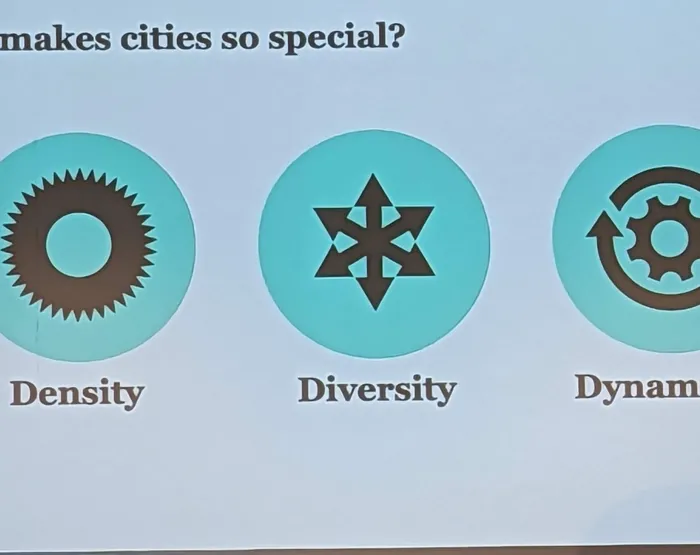Core Cities UK works across a range of mainly domestic policy areas, championing the role of cities.
What is Core Cities UK
Core Cities UK works across a range of policy areas, stressing the untapped potential of cities and their citizens. Well developed, evidence-based policy is at the heart of what we do.
Our current policy areas include:
Growth
Cities are internationally recognised as drivers of growth and the current Government has put economic growth at the heart of its policy agenda.
Core Cities UK proposes an investment based approach, working in partnership with the Private Sector to drive economic productivity, unlock the opportunities of Net Zero and get the UK building again.
Achieving all these things will require significant investment – substantially more investment than could possibly be funded directly by either the national or local state.
Fortunately, there is genuine appetite to meet this investment gap from private investors, who both recognize the long-term potential returns across our cities and, in an era of increasing geopolitical uncertainty, have an increasing appetite to invest in partnership to support the long-term prosperity and sustainability of the UK.
We believe there is the potential across a variety of asset classes, including:
- Housing development and urban regeneration
- The crucial energy, heat and transport infrastructure that will power the transition to net zero
- Education, life sciences and the infrastructure required for the knowledge economy
- Improving access to the resources to support early-stage growth in commercial and
community enterprises.
Together, these assets can power the economy and help transform the lives of our citizens. But achieving this step change in private investment in our regions and cities will not happen unless we address the following critical issues that are holding us back:
Critical capacity constraints and risk aversion locally is limiting the number of investible propositions coming forward and limit the potential for strategic partnership that attracts the institutional investors.
Where there is interest in entering into investment partnerships, with some exceptions,
there is limited capability in structuring deals within cities and regions.
There is also a shortage of genuinely risk-bearing catalytic capital. There are too many projects that are currently stalled which could be unlocked through first loss, catalytic public capital deployed innovatively as part of a blended finance model that shares risk with private capital.
Core Cities UK believes we need city investment partnerships, a new relationship between cities and private capital. There is a crucial enabling role for central
government, but cities will be in the lead in this new partnership. This approach would directly address the pressing need for more specialist capacity and catalytic capital in place, and be based on four elements:
- Strong leadership at the local and regional level, supporting the shaping and development of the key projects that will bring the local economic and spatial plan to life.
- Enabling specialist resource to support cities and regions to structure and
manage the development of projects in ways that appeal to the different pockets of
institutional capital. - Provision of a limited pool of flexible, risk-taking capital, that could be deployed by
regions and cities to catalyze private capital. - A commitment by key financial organisations to devote the time, energy and
resource to engage meaningfully with the emerging opportunities.
Relatively small amounts of specialist commercial capacity combined with funding dedicated to supporting places shape and deliver on their investment ambitions and some modest amounts of flexible catalytic capital could unlock many multiples of this funding in terms of private sector investment, in an exciting range of projects that deliver enormous impact and enhance our great cities as exciting places to live and work.


Public Service Reform
Making sure our local state is better joined up and more responsive to the ever more complex needs of our citizens. We are working closely with ministers, stressing the importance of prevention and investment in the local state.
A key part of this work is our 2024 report with Metro Dynamics and the Centre for Progressive Policy. Future Preventative Public Services which argues for a preventative, locally led local state which it nicknames Total Place 2.0 referencing work that took place under Tony Blair's Labour Governmnet in the early 2000s and which has been quietly carrying on in many of our cities.
Recommendations include:
- The introduction of new ten-year Local Prevention Plans – to be rolled out alongside Local Growth Plans. We recommend Local Prevention Plans are led by local authorities, with a supporting role for Mayoral Combined Authorities to provide shared services (including financing vehicles) where appropriate.
- Giving local government should have funding flexibilities to turn the tide now. Two currently acute examples are in providing temporary accommodation for people facing homelessness and asylum seekers and refugees, and children’s placements in local authority care.
- Development of possible approaches to funding preventative programming including considering a central Prevention Fund, with long-term time horizons and held to account by an external body (e.g. the Office for Value for Money), with a mission to save £2 for every £1 invested.
- A Needs-based budgeting and a Fair Funding Review for local government
- Simplified Whitehall-local funding: Building on DLUHC funding simplification pilots for capital local growth pots, the Government could simplify funding around outcomes (e.g. housing, children’s services, social care).

Net Zero
Core Cities UK believes cities, where the majority of people, universities and businesses tend to be located, are the places where the battle to reach Net Zero will be won or lost. Most of our work in this area takes place through 3Ci – Cities Climate Investment Commission - which aims to facilitate an unprecedented public-private financing partnership to achieve net zero targets.
Via a partnership between Core Cities UK, Connected Places Catapult, London Councils, Key Cities, Scottish Cities Alliance, and other local authorities across the UK, 3Ci commits to playing a key role in delivering an ambitious national net zero commitment, city by city and neighbourhood by neighbourhood.
3Ci is uniquely placed to:
- Innovate new approaches to investment and test their viability through demonstrators.
- Accelerate collaboration between local and national government, industry, and financial institutions.
- Advocate for changes in approach to investment across local and national government.
- Advance capacity and capability by rapidly accelerating knowledge transfer between public and private sector partners


International
Core Cities UK has a strong international policy arm, believing that cities across the world need to work together and play an enhanced role in geopolitics. In 2022 we founded the Urban 7, an alliance of city networks from across the G7 nations.
We also work closely with other groups including Eurocities, C40 and the Global Parliament of Mayors. We also believe in the power of city diplomacy to extend our UK-wide and global reach, boost Trade & Investment. Our Cities have significant soft power outreach - As convenors of sport, culture, music and education institutions that have international profile as well as civic links with other places. We argue that while nations pledge, it is cities that often deliver.
For example, cities are key to delivering on international policy like climate. They often build and manage low carbon infrastructure and services to bring about carbon reduction and are closely connected to our communities to work with them on climate action.

Case study - The RSA Urban Futures Commission
In 2022 we worked with colleagues at the Royal Society of Arts and Lloyds Banking Group to create the RSA Urban Futures Commission, a wide-ranging enquiry into the power and potential of cities. Chaired by RSA Chief Executive Andy Haldane work has since been highly influential in national government policy.
The report found that bringing the UK’s core cities up to their European peers has the potential to add £100bn (around 5 per cent) to GDP each year and if social outcomes could mirror those in London, then this would lift 250,000 people out of unemployment, 1.2 million out of poverty and increase healthy life expectancy by up to eight years.

The Commission's recommendations included:
National government should adjust its fiscal rules, to focus on maximising long-term net wealth rather than lowering debt over the near term, removing the unnecessary cap on productive investment in our cities and connectivity between them.
National leaders should then fully empower city leaders, giving them statutory responsibility for raising prosperity and the tools to deliver this with an end to the familiar competitive bid culture and getting serious about their ability to raise and keep a greater proportion of taxes at a local level.
Cities should draw up long-term local prosperity plans to enhance the economic, social and environmental health, agreed by a broad range of stakeholders, which should sit alongside a return of a national industrial strategy that has cities at its heart.
Cities should put in place new architecture for the delivery of these plans, such as a Cities Investment Hub to provide expert advice on investment projects and Urban Wealth Funds for professionally managing the assets of a city.
Nations pledge, but it is cities that deliver.